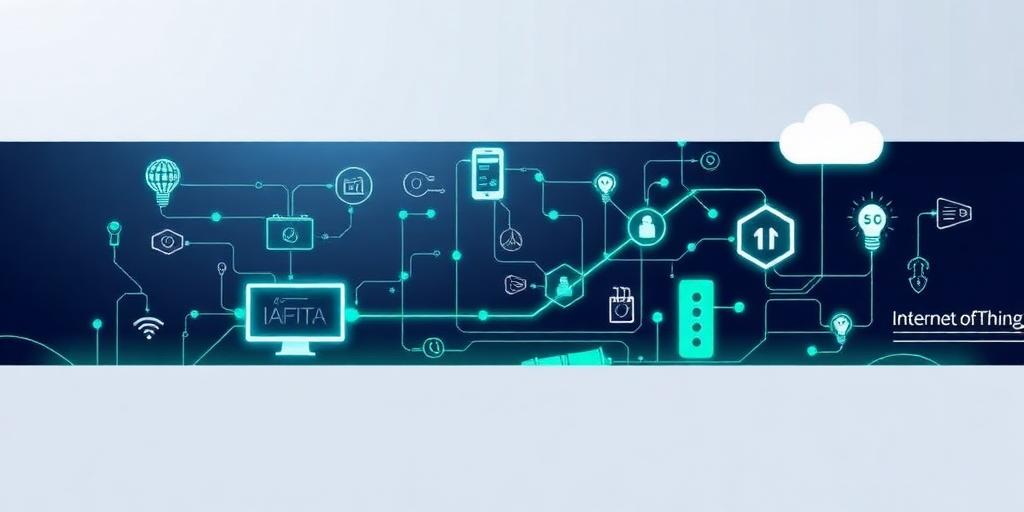The Internet of Things (IoT) represents a monumental shift in how we interact with technology and the physical world. As devices become increasingly interconnected, the demand for skilled professionals capable of designing, developing, deploying, and managing these intricate systems has surged. Building a successful career in the Internet of Things is not merely about choosing a job; it's about navigating a dynamic and expansive field ripe with innovation. This guide will illuminate the essential pathways and strategies for aspiring IoT professionals, providing a definitive roadmap to establish a thriving presence in this transformative sector.To thrive in this domain, a robust skill set is paramount. Aspiring professionals must cultivate both technical prowess and critical soft skills. Before embarking on an IoT career path, it is crucial to understand the vastness of the ecosystem. IoT spans diverse industries, from smart homes and cities to industrial automation (IIoT), healthcare, and automotive. Each sector presents unique challenges and opportunities, requiring specialized knowledge. Recognizing these distinct verticals can help individuals pinpoint areas that align with their interests and expertise, providing clarity in a burgeoning IoT job market.
Essential Skills for IoT Professionals
- Core Technical Competencies:
- Programming Languages: Proficiency in Python, C/C++, Java, or JavaScript is often required for device programming, backend development, and data processing.
- Networking Protocols: A deep understanding of communication protocols (e.g., MQTT, CoAP, HTTP) and wireless technologies (e.g., Wi-Fi, Bluetooth, LoRaWAN) is fundamental for ensuring seamless device connectivity.
- Data Analytics and Machine Learning: IoT generates vast amounts of data. Skills for IoT professionals include the ability to analyze this data, extract insights, and apply machine learning algorithms for predictive maintenance, anomaly detection, and intelligent automation.
- Cloud Platforms: Expertise in major cloud providers (AWS IoT, Azure IoT, Google Cloud IoT) is essential for managing large-scale deployments, data storage, and processing.
- Cybersecurity: Given the sheer volume of connected devices, security is non-negotiable. Knowledge of encryption, secure coding practices, and vulnerability assessment is critical.
- Hardware Interfacing: Basic understanding of electronics, sensors, microcontrollers (e.g., Arduino, Raspberry Pi), and embedded systems is advantageous for those involved in device development.
- Crucial Soft Skills: Problem-solving, critical thinking, adaptability, strong communication, and collaboration are indispensable for navigating complex projects and multidisciplinary teams.
Educational and Professional Development Avenues
For individuals wondering how to get into IoT, several avenues exist.- Formal Education: Degrees in computer science, electrical engineering, software engineering, or related fields provide a strong theoretical foundation. Specializations in IoT or embedded systems are increasingly available.
- Certifications and Online Courses: Numerous platforms offer specialized IoT certifications (e.g., AWS Certified IoT Specialty, Google Cloud Professional Cloud IoT Developer) and courses from reputable institutions, providing targeted knowledge and industry recognition.
- Self-Learning and Projects: Hands-on experience is invaluable. Building personal IoT projects, contributing to open-source initiatives, and participating in hackathons demonstrate practical application of skills and a genuine interest in the field.
Navigating the IoT Job Market and Roles
The future of IoT jobs is expansive, with a variety of specialized roles emerging.- IoT Developer/Engineer: Focuses on coding, integrating sensors, and developing applications for IoT devices and platforms.
- IoT Architect: Designs the overarching structure of IoT solutions, including device integration, data flow, and cloud infrastructure.
- IoT Data Scientist/Analyst: Specializes in processing, analyzing, and deriving insights from IoT data to inform decision-making.
- IoT Security Specialist: Implements security measures, identifies vulnerabilities, and ensures the integrity and privacy of IoT systems.
- IoT Product Manager: Oversees the lifecycle of IoT products, from concept to launch, ensuring market fit and user satisfaction.









